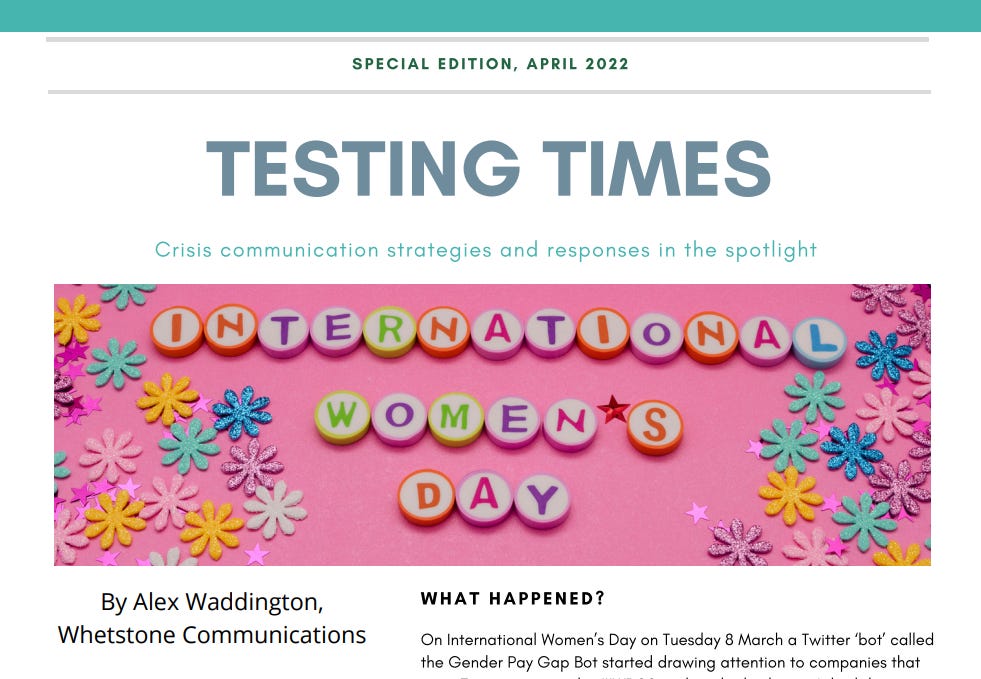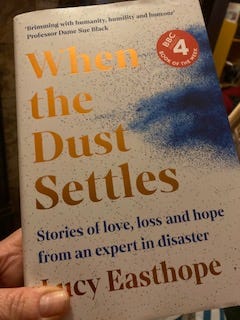An Easter at risk
The long Easter weekend has been very different in the past two years due to the impact of the pandemic. People may feel as though they are getting on with their lives but are they really aware of how to manage risks? If the pandemic communication had been really effective people would now be taking steps themselves to lower the risks as the Covid-19 cases increase.
Unfortunately, there is a polarisation of views and opinions on the pandemic, daily life and what action to take. The Government appear to be encouraging this polarisation. We either have extensive restrictions on people’s lives or we have no measure in place whatsoever. This is a similar approach to China’s ‘zero Covid’ policy that has left large part of the country, including Shanghai, in a strict lockdown.
The truth is risk is not about black and white, right or wrong, yes or no. It is about looking at all the variables and aspects of a situation and then finding the best moves to take. This means there can be small steps that can be taken to minimise risks. Many of these risks have little or no impact on the way we run our lives. I continue to wear a mask when in close proximity to others and especially when shopping. I choose times to go to places when it is not as busy. I still keep a safe distance from my elderly parents.
I wrote in the last edition about the details from the National Preparedness Commission report on the Civil Contingencies Act. Within the recommendations was one to be more open with people and to have an ongoing conversation about dealing with risks and being prepared for what may happen. There is an opportunity now to have those discussions and to help people to see what they need to do to manage their risks. Sadly, there is no-one that is able to take this step. There is no central person or department that is willing, or able to step forward, and on a local level there are many other demands on people’s time.
In the coming days I would urge communicators to consider the situations they are dealing with, to look at the risks, and to see how they may be able to guide people rather than tell them what to do.
I hope you have a safe and relaxing Easter long weekend.
Amanda
Testing Times Takeover
A special edition of the crisis communication case study Testing Times has been published. Alex Waddington, from Whetstone Communications, has looked at the Twitter ‘bot’ that was working on International Women’s Day. He provides insight using his data driven approach. For a copy email Amanda at amanda@amandacolemancomms.co.uk
When the dust settles
What happens in the aftermath of a disaster? When the cameras and journalists have gone who is there to pick up the pieces? The subject of disaster management is at the heart of the new book by Professor Lucy Easthope. But it is about so much more. It took me just a couple of days to read as I could not put it down. Find out why and also why I believe all communication and PR professionals should read it in this blog.
LAST CALL: Easter support
If you need any last minute crisis or issues management support over the long Easter weekend just email Amanda to discuss how Amanda Coleman Communications Ltd can help - amanda@amandacolemancomms.co.uk
In Brief:
The Ferrero factory in Belgium was closed by the country’s food agency following a salmonella outbreak. The company was criticised for late and poor crisis communication linked to the situation. Read about the closure here.
Government approaches to tackling crises are assessed in an article in Civil Service World online. Find out more here. At the same time Global Government Forum has outlined five keys to government communication in a crisis. I can’t agree with the defensive approach with point 2 being that ‘knowledge is your strongest defence’ but the other points are among my top crisis points. Read the article here.
A report is available from USA on crisis communication and safety in education. Produced and available on the website Campus Safety it is billed as helping with planning. Find out more here.
The impact of the sanctions on Russia and the war in Ukraine is affecting supply chains. Understanding the risks in these processes features in a Forbes article by Edward Segal. Read it here.
Diary Dates:
On 20 April Amanda will join a panel to discuss the impact of long haul issues and incidents. The session organised by the CIPR Corporate and Financial Group starts at 4pm. Find out about the session here.
Amanda is chairing the SASIG webinar on 22 April. The session at 11am will be looking at the Mandiant’s 2022 M-trends. Find out more here.
The Senior Practitioner Forum by CIPR Cymru Wales takes place on 26 April and Amanda will provide the keynote speech challenging views of reputation management within PR.



